Tory leadership: From Black Lives Matter to immigration - the candidates’ stance on race
Despite a tumultuous two years following the Black Lives Matter protests, questions around the candidates’ position on race equality have been missing from the leadership race
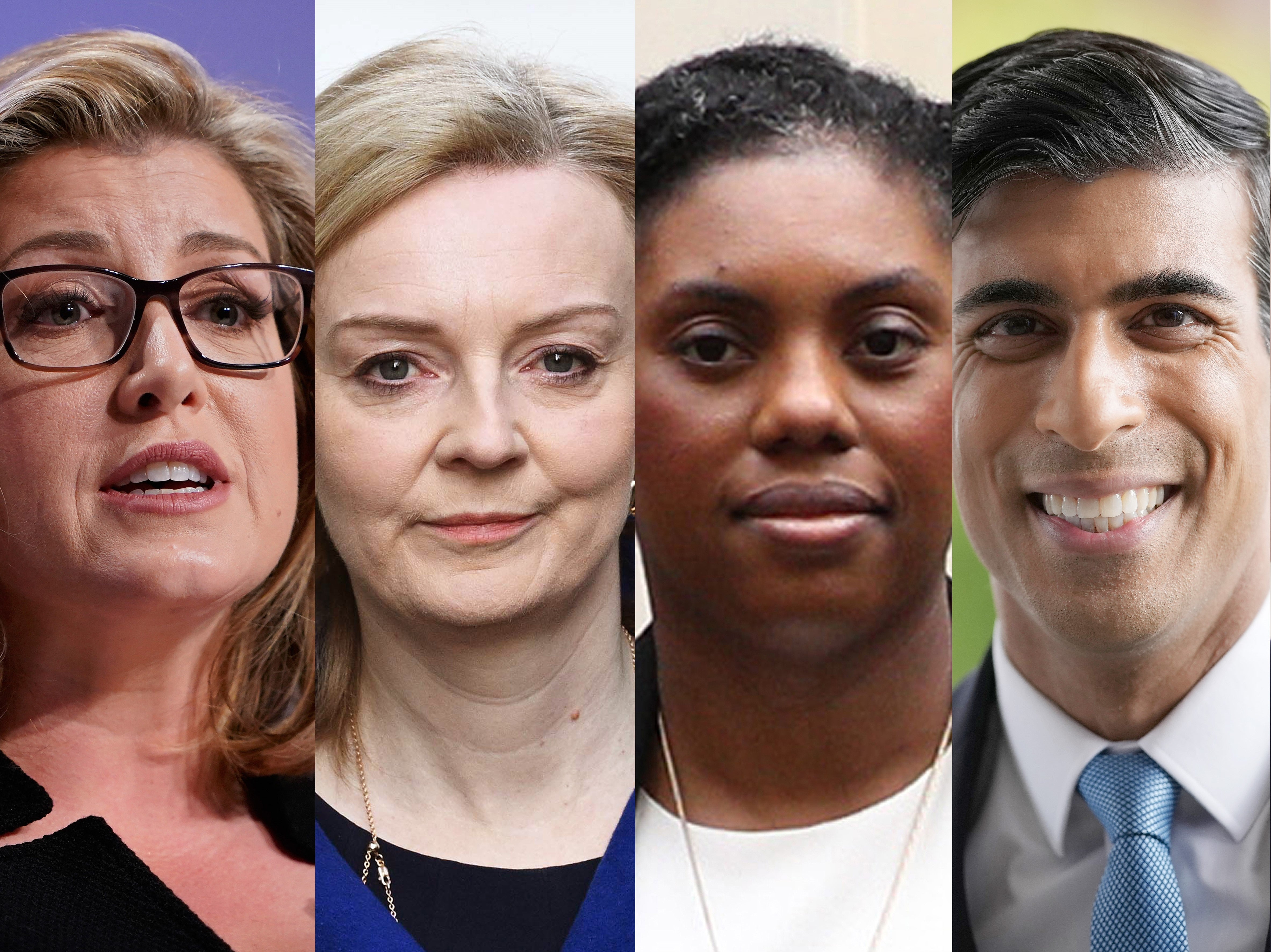
Your support helps us to tell the story
From reproductive rights to climate change to Big Tech, The Independent is on the ground when the story is developing. Whether it's investigating the financials of Elon Musk's pro-Trump PAC or producing our latest documentary, 'The A Word', which shines a light on the American women fighting for reproductive rights, we know how important it is to parse out the facts from the messaging.
At such a critical moment in US history, we need reporters on the ground. Your donation allows us to keep sending journalists to speak to both sides of the story.
The Independent is trusted by Americans across the entire political spectrum. And unlike many other quality news outlets, we choose not to lock Americans out of our reporting and analysis with paywalls. We believe quality journalism should be available to everyone, paid for by those who can afford it.
Your support makes all the difference.In a sign of concern about the way the leadership race is being conducted, Conservative Party leadership frontrunners Rishi Sunak and Liz Truss confirmed they did not want to take part in a Sky News debate planned for Tuesday – prompting the broadcaster to cancel the show.
Hours after this, Tom Tugendhat was eliminated from the race after finishing last in the third round of voting.
All four of the current contenders – Rishi Sunak, Liz Truss, Penny Mordaunt and Kemi Badenoch – have taken part in debates on Channel 4 and ITV which have seen the would-be prime ministers arguing why they should lead the country.
Despite a tumultuous two years on race following Black Lives Matter protests, questions around their position on race equality have been missing from the mainstream debates about who will get the keys to No 10 Downing Street.
Though none of the candidates responded to The Independent’s requests for comments, we looked at their track records.
Rishi Sunak
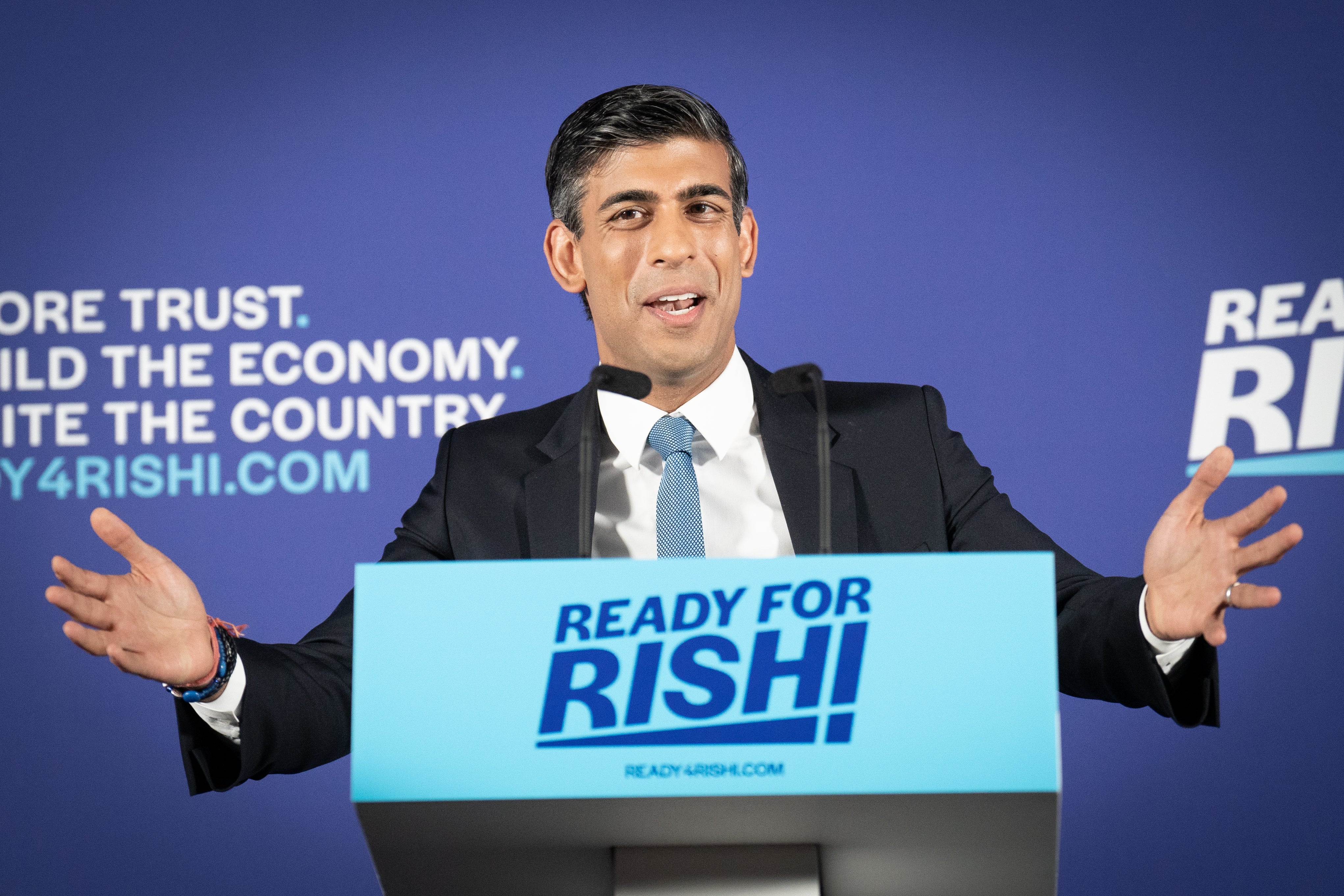
The former chancellor, 42, defended the prime minister’s use of racist language in 2019, describing it as “engaging” and “direct”.
Among a slew of inflammatory remarks and articles during his journalism career, Boris Johnson previously referred to Black people as “picaninnies” with “watermelon smiles”, both racial slurs, and compared Burka-wearing Muslim as “letterboxes”.
More recently, Mr Sunak’s Spring Budget was slammed by campaigners after the Treasury failed to publish an equalities impact assessment detailing how the Chancellors’ announcements would impact minority groups.
Along with Mr Boris Johnson, Rishi Sunak presided over one of the worst Covid death tolls in the world, which saw Black and Asian people disproportionately dying from the virus. His ‘Eat Out to Help Out’ scheme saw a spike in transmissions ravage the most vulnerable communities.
As Black Lives Matter protests erupted across the UK in June 2020, the former chancellor told Sky News “as a British Asian, of course, I know racism exists in the UK” but insisted “change doesn’t come about through acts of vandalism and violence”.
In the same month, Black business leaders wrote to Mr Sunak, other government ministers and the chief executives of Britain’s largest lenders, to demand action to improve credit provision and other support for Black, Asian and minority ethnic entrepreneurs. No action was taken on these specific demands. At this time, it was confirmed that Black business owners were less likely to access crucial funding during the pandemic but their businesses were more likely to close.
Sunak, one of the richest MPs in the commons, has consistently voted for a reduction in spending on welfare benefits. Black and Asian families are among the country’s poorest.
Despite expressing “pride” over his immigrant roots and leaning into this narrative as part of his campaign, Mr Sunak supports sending the Home Office’s controversial plan to deport asylum seekers to Rwanda.
Liz Truss
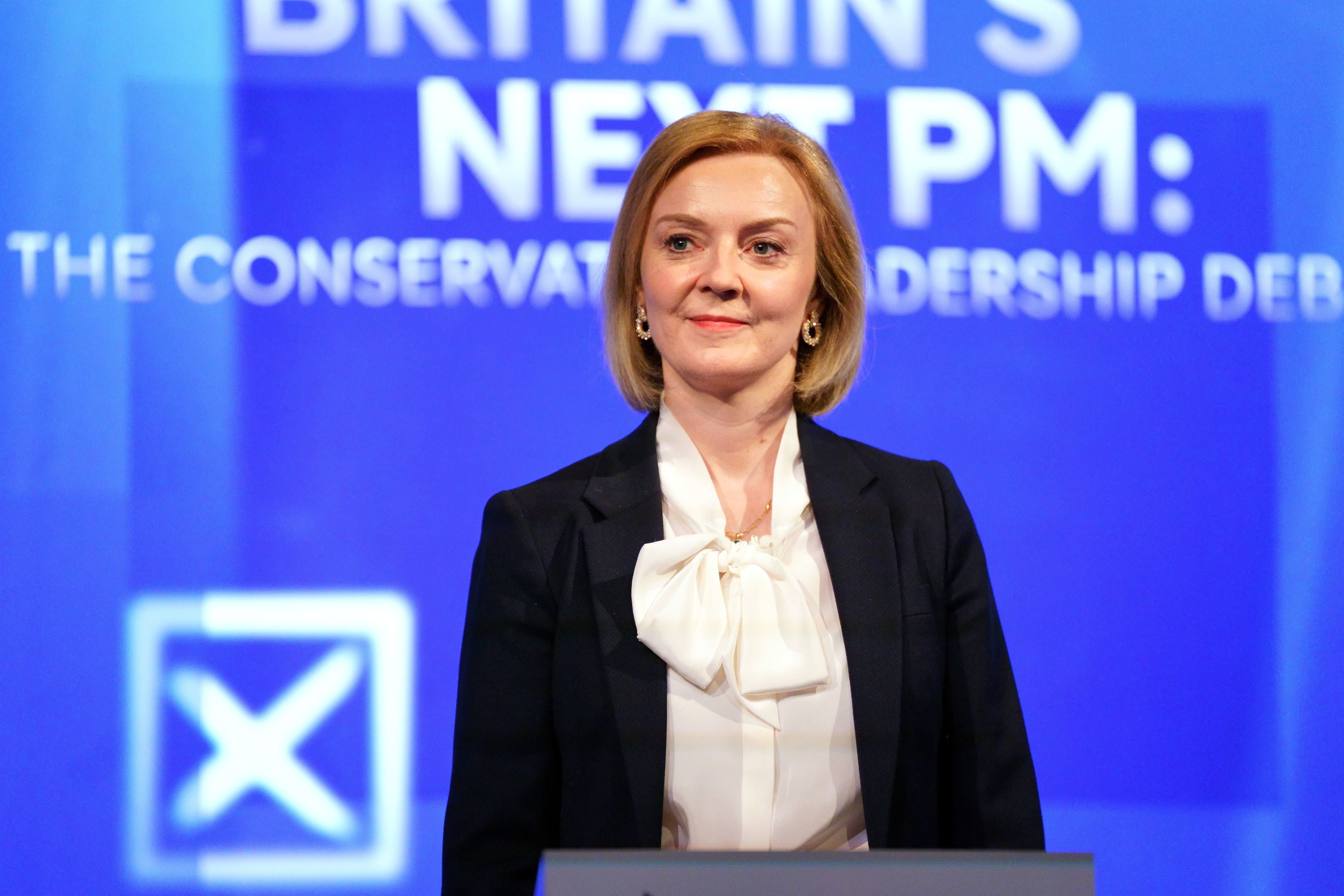
The former foreign secretary, 46, has consistently voted against spending public money to create jobs for young people who have spent a long time unemployed - the majority of which are from Black and ethnic minority groups.
During a speech to the Centre for Policy Studies think tank in December 2020, when she was equalities minister, Ms Truss denounced the focus on race, sexuality and gender issues as “tools of the left”.
During the same speech, Ms Truss claimed children in her class at school were left unable to read or write because too much time was taken up learning about racism and sexism. This part of her speech, branded as “bonkers” by critics, was pulled from the government website due to concerns about its provocativeness.
Writing for The Independent in response to Ms Truss’ remarks, Labour MP Diane Abbott accused the politician of “dismissing concerns about racial and gender inequality as merely ‘fashionable’ in a crude attempt to appeal to white ‘Red Wall’ voters”.
Ms Truss has been accused of setting an “appalling standard” on equality in government after it emerged that of more than 250 trade advisers she has appointed, fewer than a quarter are women and 95 per cent are white
According to the data collated by the office of Labour’s Emily Thornberry, 240 of the new recruits between mid-July and December 2020 were white, 12 Asian and only one was Black.
Speaking ahead of a summit of G7 counterparts in Liverpool last December, Ms Truss said Britain must embrace its “warts and all” history, the British Empire, if it is to compete with hostile states - perceivably ignoring the ongoing damage that imperialism has caused to its former colonies.
In October 2021, Ms Truss, who was foreign secretary at the time, said: “The UK remains steadfast in its commitment to tackling racism around the world.” Yet, the politician hasn’t done much to tackle racism happening within the UK or to support the organisations that do.
She too has followed party tradition by taking a hardline stance on immigration.
Penny Mordaunt
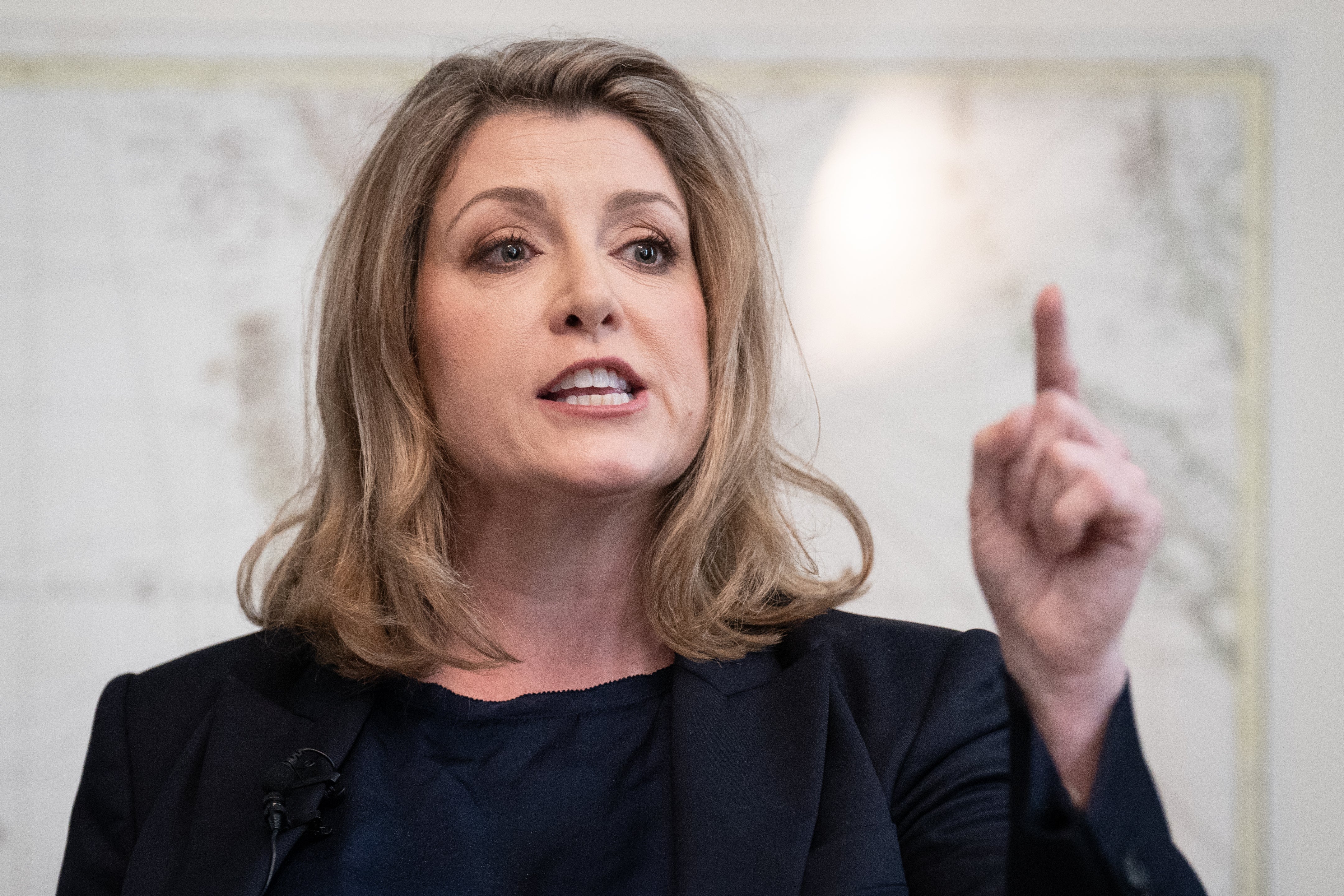
“Mordaunt is not a standard rightwinger: a social liberal, critics denounce her as a “woke warrior,” the Financial Times declared last week.
Still, the 49-year-old Portsmouth MP, considered a strong contender in the leadership race, clearly takes umbrage with the term.
Writing on Twitter earlier this month, she said: “ Some want to damage my reputation for whatever reason. They want to depict me as ‘woke’. I was elected by the no-nonsense, down-to-earth people of Portsmouth North. It was a Labour seat. I’ve increased my vote share at each election. I refer you to their judgment.”
After England fans booed players who took the knee before a match in solidarity with Black campaigners, Ms Mordaunt said the response was not “helpful to the team”. In an interview with i newspaper, she said: “I think it’s very clear what the football players are signalling. It’s clearly a really raw issue for a lot of the team.”
In her book, Greater: Britain After the Storm, published in May 2021, the politician objected to “casual racism, homophobia, white privilege, colonialism, transphobia” in an old BBC sitcom It Ain’t Half Hot Mum.
The book also reportedly praised the Black Lives Matter movement for drawing attention to “inequality and injustice”.
Ms Mordaunt has generally voted against measures to prevent climate change, which would help to stem an erupting crisis which disproportionately affects Black and Asian communities, particularly in places such as London.
The MP also voted in favour of repealing the Human Rights Act, which charities have warned would dilute protections for Black, Asian and minoritised groups.
The Tory leadership hopeful also voted against making it illegal to discriminate on the basis of caste, which is a form of race discrimination that is not explicitly illegal in the UK. She has also consistently voted for phasing out secure tenancies for life, which Black and Asian people are most affected by in the housing crisis, and voted for raising England’s undergraduate tuition fee cap to £9,000 per year in 2010, a decision that has since left many lower-income, minoritised students saddled with debt.
Kemi Badenoch
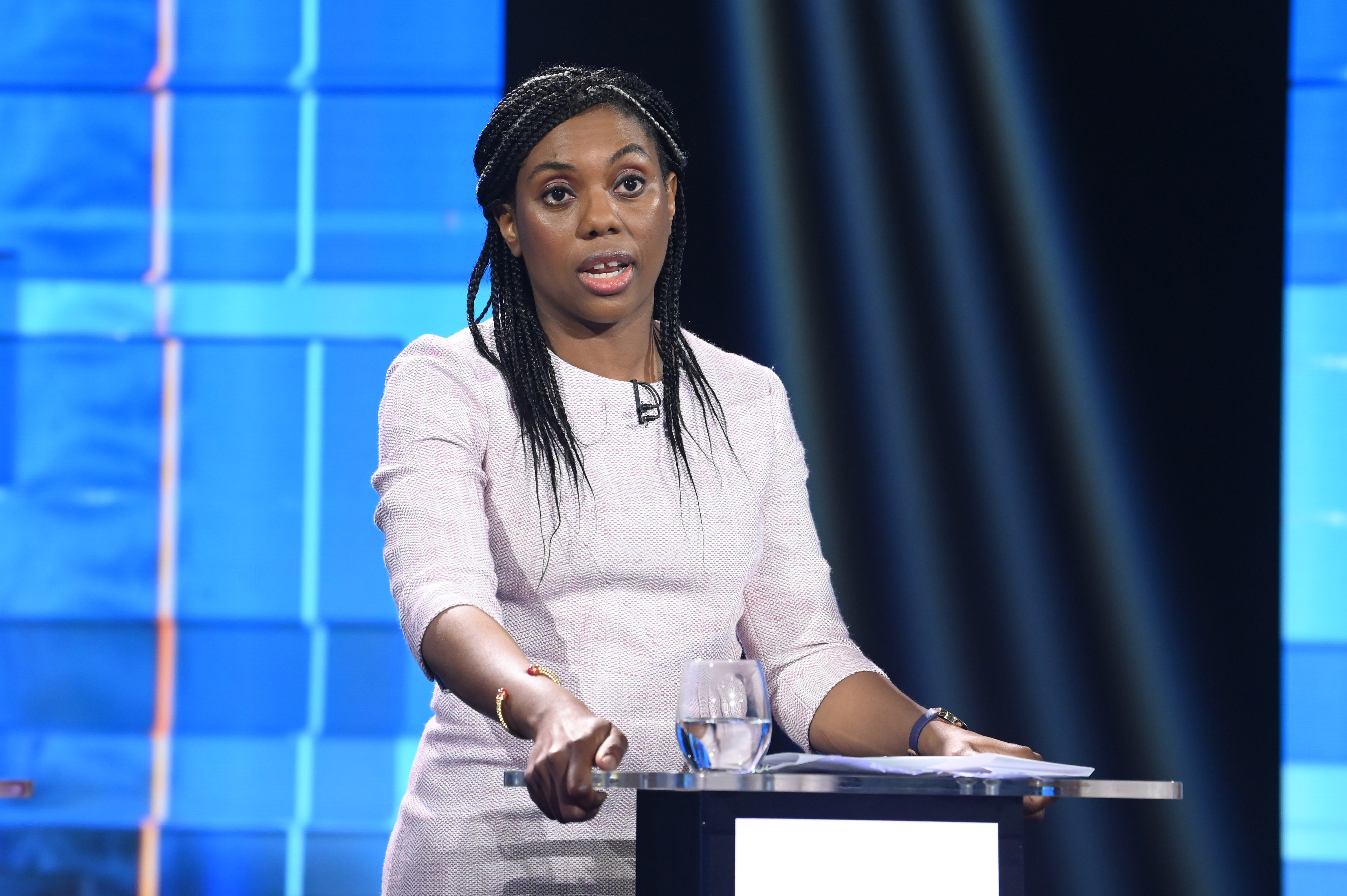
The former equalities minister, 42, sponsored a probe which found no evidence of systemic racism in Britain.
The Commission on Race and Ethnic Disparities report, published in March 2021, was described by the United Nations as “an attempt to normalise white supremacy” and was condemned by countless associated organisations which began to distance themselves amid immense backlash.
Mrs Badenoch is known for her belief that racial disparities are often overexaggerated, exploited by the left and far from being systemic. In her pitch for Tory leadership, she pledged to scale up the war on woke by attacking “identity politics”.
The MP for Saffron Walden in Essex has been accused of ‘racial gatekeeping’ after she allegedly wrote: “I don’t care about colonialism”, adding that imperial invaders “just made a different bunch of winners and losers”.
Critics have accused Mrs Badenoch of using every opportunity to talk about corruption and poverty in Nigeria, where she once lived, in disparaging terms when justifying ambitions to be Tory leader - despite being born in Wimbledon, south London, to wealthy parents.
The self-styled “African immigrant”, who spent some of her childhood in the US, has previously voted for stronger enforcement of immigration rules and a stricter asylum system, promising in her campaign run to do “whatever it takes to stop small boats [crossing the Channel]”.
Mrs Badenoch has attracted a fair share of controversy, which includes attacking Black journalists’ work.
The politician once cautioned that Black History Month was in danger of becoming “racism history month” while standing against diversifying the national curriculum. She has accused schools of teaching white privilege as an uncontested fact, saying it was illegal and she did not want white children being taught about “their inherited racial guilt”.
The MP has never spoken in support of the global Black Lives Matter movement and caused offence by saying the UK’s response to a Black teenager being strip-searched at school “proves this country doesn’t have a problem with race”.
Join our commenting forum
Join thought-provoking conversations, follow other Independent readers and see their replies
Comments